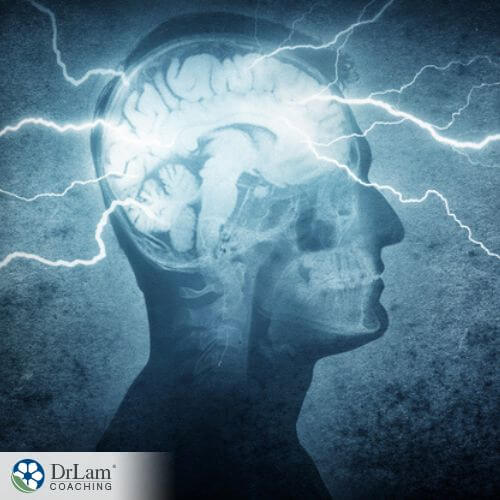If you have ever had a migraine, you know all about the throbbing pain, the light-sensitive eyes, and the nausea of a truly horrendous migraine. And refractory chronic migraine is even more challenging than other migraines because typical medications do not help it. This type of migraine can also be more frequent than typical migraines.
 Getting migraines is a neurological condition that, during a period of three months, affects more than 15 percent of the adult US population. Although anyone can suffer an episode, certain people are more at risk. This includes those who have the following conditions:
Getting migraines is a neurological condition that, during a period of three months, affects more than 15 percent of the adult US population. Although anyone can suffer an episode, certain people are more at risk. This includes those who have the following conditions:
Much literature suggests that migraines may have a genetic component.
Your symptoms may go through a range of stages. For example, you may show the following symptoms before the migraine starts, referred to as the prodrome phase:
During the migraine episode, you may experience the following:
Some people may also experience an aura and feel tired and irritable for up to two days after the migraine’s passing.
The symptoms of a refractory chronic migraine are the same as those of a normal or even chronic migraine. The difference, however, is their frequency and that they do not seem to respond to conventional forms of therapy. Furthermore, the symptoms may have a serious impact on the quality of life of those who get this type of migraine.
It is worth mentioning that overusing certain medications may contribute to migraines. Many people take pain medications regularly to help with chronic migraines. However, once you stop taking these meds, you may get withdrawal symptoms similar to a migraine. Healthcare practitioners will often first rule out this as the cause before proceeding with a refractory chronic migraine diagnosis.
There is much speculation as to what happens in your brain when a refractory chronic migraine strikes. Most literature does suggest that migraines are a neurological conditions. Thus, they have to do with your Neuroaffect Circuit.
Older theories have it that a migraine episode may result from blood flow fluctuations in your brain. These days, however, the belief is that these fluctuations - changes in blood flow and blood vessels - may contribute to the pain but do not cause it.
More current thinking focuses on the role of hormones and other chemical compounds in your brain. Your serotonin and estrogen levels, for example, may play a role in your pain experience.
A migraine may start due to activity from excitable brain cells which trigger hormones like serotonin, for example, to narrow certain blood vessels in your brain. Although serotonin acts as a neurotransmitter between nerve cells, it may also cause blood vessels in your body to narrow.
A hormone imbalance may result in migraines in some people. Fluctuating serotonin levels may cause migraines in both men and women, while fluctuations in estrogen tend to mostly affect women.
 As part of your NeuroEndoMetabolic (NEM) stress response, your Neuroaffect Circuit plays a significant role in keeping your body on an even keel during stressful periods as well as when stressors pass. Consisting of the brain, microbiome, and autonomic nervous system, one of its main roles is preserving mental health. This triad makes use of neurotransmitters for effective communication.
As part of your NeuroEndoMetabolic (NEM) stress response, your Neuroaffect Circuit plays a significant role in keeping your body on an even keel during stressful periods as well as when stressors pass. Consisting of the brain, microbiome, and autonomic nervous system, one of its main roles is preserving mental health. This triad makes use of neurotransmitters for effective communication.
In those with adrenal fatigue, or when constant stress results in elevated cortisol levels, you may see fluctuations in neurotransmitter and other hormone levels. This is because those chemicals used to form them, such as the precursor hormone Dehydroepiandrosterone (DHEA), are also used to manufacture stress hormones. This may result in a hormone imbalance that affects various systems in your body. This includes your brain. Migraines may result due to fluctuations in brain hormone levels.
Because of this, addressing hormone fluctuations may help refractory chronic migraine as well.
Normal migraines are often addressed with medication. You may be advised to use medications to reduce pain, nonsteroidal anti-inflammatory drugs (NSAIDs) are an example. Conventional medicine practitioners may also advise the use of blood pressure medications, anticonvulsants, and antidepressants. Antiemetics to stop vomiting and manage nausea are also often suggested.
Medications suggested include the following:
Another possibility, neuromodulation, makes use of an implanted or handheld device. It regulates nervous system activity.
Unfortunately, this therapy array does not help those suffering from a refractory chronic migraine.
To determine whether you suffer from refractory chronic migraine episodes, current literature suggests you need to meet a few criteria. These include the following.
The best way of managing a refractory chronic migraine, or even a normal migraine, is before it starts. This is done by addressing the root cause of the issue. Many people, for example, find that eating a certain food leads to the onset of a migraine. The root cause of a migraine may be connected to food sensitivities, toxin exposure, hormone imbalance, inflammation, gut dysbiosis, stealth infections, and detoxification issues. Here are some ways to reduce potential migraine triggers.
One of the first things to look at is managing stress. This could result from conditions at your workplace or in your personal life. If you cannot remove yourself from the situation, try to reduce the stress. For example:
In other words, do whatever takes your mind off your situation and makes you happy.
 Certain foods add to your body’s stress load. Many of us also have food sensitivities about which we do not know. And in many cases, people with a lot of mental stress may forget to eat regularly. Hunger is often a migraine trigger.
Certain foods add to your body’s stress load. Many of us also have food sensitivities about which we do not know. And in many cases, people with a lot of mental stress may forget to eat regularly. Hunger is often a migraine trigger.
A healthy diet is one where you cut down on your sugar, processed food, and refined carbohydrate consumption. You should instead consider a diet like the adrenal fatigue diet that supports overall health. Here, you concentrate on drinking enough water and eating plenty of fresh fruits, vegetables, and fatty fish rich in omega-3 fatty acids like sardines, tuna, and salmon.
Also, make sure you eat regular meals. Keeping a food diary will also help. This allows you to examine whether your migraine frequency and severity are related to certain food triggers. Common triggers include caffeine, chocolate, and alcoholic beverages.
Most of us need eight hours of sleep at night not only to function properly but to allow our bodies time to heal. If getting enough sleep at night is a problem, try the following:
Regular exercise does not mean you have to go to a gym. Instead, concentrate on gentle exercise forms that work up a light sweat and do not leave you with too many aches and pains the next day. You could consider the following:
And please, do not do any rigorous exercise if suffering from adrenal fatigue. Exercise increases cortisol, which could exacerbate the condition and result in an adrenal crash.
Many natural supplements may help address the symptoms or causes of a refractory chronic migraine. However, first you should talk to your healthcare provider. They are best able to determine whether a supplement is suitable for you, as well as the dosage. Many of these supplements may have contraindications with certain medications, or not be fit for use if you have certain underlying conditions.
Melatonin may help address migraine issues relating to aches and pains due to its anti-inflammatory properties. Your body also makes it naturally. It is one of the hormones that is often in a state of imbalance when suffering from adrenal fatigue. However, although rare, side effects of taking a melatonin supplement could include sleepiness, short periods of depression, and discomfort in your abdominal region.
Literature suggests that those experiencing frequent migraines often have lower-than-normal magnesium levels. Magnesium plays a role in blood pressure and blood sugar control. It also plays a role in the proper functioning of your muscles and nerves. It can also help sleep. Taking too much magnesium, however, can cause cramps, nausea, and diarrhea.
 Feverfew, as the name suggests, may help address fevers. But it is also known to help with pain resulting from inflammation. Results on using feverfew as a means of addressing migraines are promising. Taking feverfew, however, could cause blood thinning issues, so do not use it if you use anticoagulant drugs.
Feverfew, as the name suggests, may help address fevers. But it is also known to help with pain resulting from inflammation. Results on using feverfew as a means of addressing migraines are promising. Taking feverfew, however, could cause blood thinning issues, so do not use it if you use anticoagulant drugs.
Coenzyme Q10, or ubiquinone, occurs in your body naturally. A strong antioxidant, it plays a role in the proper functioning of many organs as well as various chemical reactions. A 2005 study suggests that taking a coenzyme Q10 supplement could reduce the frequency of migraine attacks by almost half. Possible side effects of taking this supplement include nausea. Extremely high dosages may harm your liver. People taking coagulants should not take this supplement.
Riboflavin, or vitamin B2, plays an important role in metabolic function. Many people suffering from migraines have metabolic issues. These metabolic issues may contribute to migraine formation. Although widely found in the food you eat, people with lower riboflavin levels may need a supplement. Foods containing this vitamin include, amongst many others, green vegetables, milk, eggs, nuts, and lean meat.
A refractory chronic migraine may have a debilitating effect on your life. Conventional medications do not work for this condition. However, taking natural steps to address the root cause, avoid triggers, and support overall health may help.
If regularly suffering from a refractory chronic migraine, here are some things you can do about it.
If you regularly experience refractory chronic migraines, the team at Dr. Lam Coaching can help. We offer a free** no-obligation phone consultation at +1 (626) 571-1234. We will privately and confidentially discuss your symptoms and options. Alternatively, please send us a question through our Ask The Doctor system by clicking here.
A refractory chronic migraine will cause stress that may impact your adrenal health. The opposite also applies. Many of the symptoms and underlying conditions contributing to this type of migraine are consequences of adrenal fatigue. Providing adrenal support may help the ease the situation.
